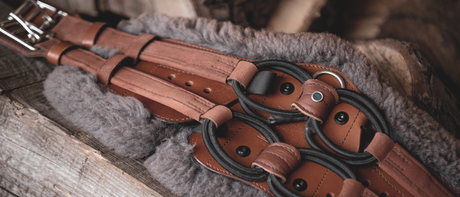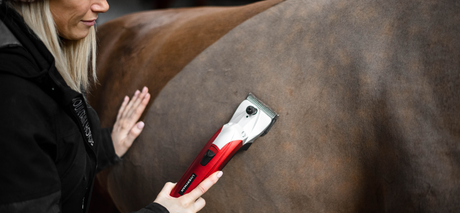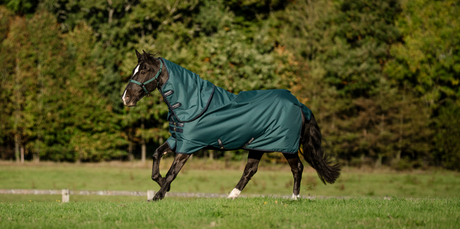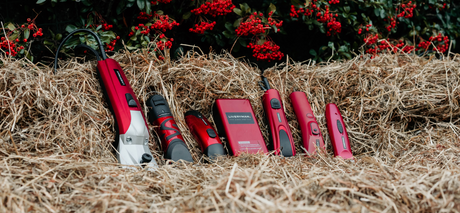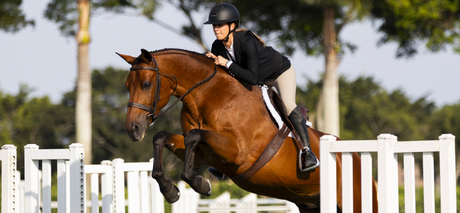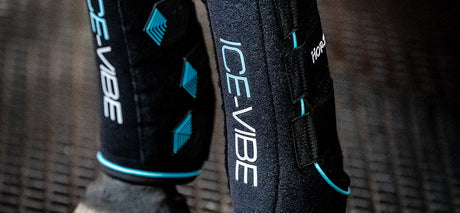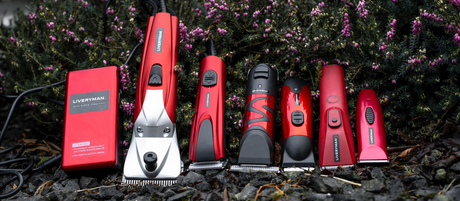If you look at any professional clippers kit, you will notice that they have a wide array of clippers, trimmers and blades. Horses have different coat types – fine, sort, fluffy, dense and long. They can also have pink or dark skin, and most definitely have more sensitive areas on their body. In this article, we’ll going to go through each of the clippers we recommend using for each of them.
Please bear in mind, there are many different techniques that can be used when clipping horses, and what we suggest might not be the perfect way for your horse.
For best results when clipping (no matter which type or brand of clippers you are using!) the horse should be as clean as possible, and bone dry with no products on the coat. A thorough bath the day before if possible, or a PROPER groom is recommended.
 Phoenix Clippers
Phoenix Clippers
MEDIUM – HEAVY DUTY CLIPPERS
New this winter, the Phoenix cordless clippers. Engineered to provide exceptional performance. The Phoenix handles even the densest winter coats effortlessly and enables a premium experience for both user and equine.
Equipped with two cartridge batteries, the Phoenix Clipper offers the power of a mains clipper with the convenience of being cordless . This powerful machine provides extensive clipping time, ensuring you can complete your clip without interruption.

Black Beauty Clippers
MEDIUM – HEAVY DUTY CLIPPERS
These are the strongest of the clippers. They are able to get through the thickest of cushing coats. We recommend a primary use of these to clip the body of the horse – neck, barrel and hind quarters. They can also be used to take off the bulk of heavy feathering if required.
These can both be plugged into the mains, or from a separate battery pack which holds roughly 5 hours charge. They have an adjustable speed setting, so it is possible to make them quieter for nervous horses.

Harmony Plus Clippers
LIGHTWEIGHT CLIPPERS
Lightweight clippers that have the A5 blade system are a fantastic item to have in your arsenal. They are generally used for clipping the head and lower legs of the horse. As the small clippers are quieter and have less vibration than the larger clippers, most horses tend to be more tolerant with these when having their faces clipped.
As the blades are narrower, it is much easier to clip all the nooks and crannies on a horse’s legs and head. With wide blades, you are also able to clip the body of the horse, although it will take you longer than if you were using medium/heavy duty clippers. These clippers aren’t as strong as medium/heavy duty clippers, so when clipping horses with a thick or excessively dirty coat you would be better to use medium/heavy duty clippers.
Generally, these clippers are very useful for youngsters and nervous horses, as they are so quiet it’s a nice introduction to clipping.

Classic Rechargeable Trimmer
TRIMMERS
Trimmers are perfect for clipping ears, bridlepaths, jawlines, armpits, stifles, and any ‘hard-to-reach’ areas on the legs (around the chestnuts, back of pasterns) and head (above the eyes and under the jaw). As the teeth of the blades are so close together, there is no chance of cutting the horse’s skin in any of the sensitive areas of the body.
Another thing that these trimmers are incredibly useful for is blending. Blending has become more and more popular in recent years, especially for competition and showing horses. These trimmers have adjustable cutting settings, ranging from 0.8mm – 2mm, which make them perfect for blending various areas of the horse – legs, mane line, top of the tail (where you would normally make a point).
They also come with guard combs, so you can choose longer cutting lengths if required.
A2 BLADES
Medium A2 blades are suitable for most horses – these have a cutting length of 2.5mm. Coarse A2 blades have wider teeth than the medium blades and are used for horses with super thick and greasy coats. They don’t tend to leave a neat finish, so going back over the coat with medium blades is required.
Fine A2 blades have a cutting length of 1.5mm, and work best on horses with a fine coat, or for summer clipping. Avoid using these on horses with pink skin, as the cut is too close and they can look like a ‘skinned rabbit’. Horses with pink skin tend to be more sensitive and liable to sun burn, so medium blades are more appropriate.
A5 BLADES
The A5 blades have the widest selection of blade options to choose from – everything from a surgical cut up to 16mm skip tooth, and wide blades if you need them to clip parts of the body.
The most common lengths that I use are –
- 2mm narrow – for head and lower legs, hogging and for blending
- 3mm narrow – for face blending
- 2.4mm wide – for body
- 6.4mm & 9.6mm skip tooth – for lower legs, when you want to shorten the hair rather than fully clip the legs.



